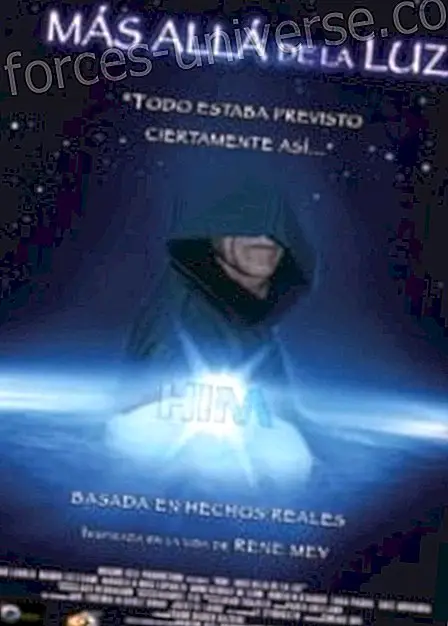You have thought about what life and life would be like? if our Students did their work with passion and real feeling in the acquisition of Knowledge . And when I speak of Student, I not only make relation to those people who are in University stage and / or of academic learning; but of all those people who daily worry about incorporating into their daily lives the benefit of Knowledge.
Do you know what the term Knowledge means?

Our Spanish Language Academy promotes a meaning of the term Knowledge, which, in my view, is the most accurate to what Experiential and Experiential Pedagogues expect from Students: “waking state in which a person is aware of what surrounds him ” .
Directly, by inviting you to analyze the term Knowledge, we delve into the philosophical branch of the name Epistemology .
For now, you should know that the Theory of Knowledge, Epistemology comes from the Greek ἐπιστήμη epistḗmē, "knowledge", and λόγος logos, "study . " A bird's flight is about learning the historical, psychological and sociological problems that lead the individual to Knowledge, to shape, validity, justification or invalidity, using the premises of truth, reality, justification and objectivity.
From ancient Greece, the Theory of Knowledge already took form and flavor, and went against Knowledge called Doxa, which was vulgar and ordinary, this one, was not subjected to any critical reflection and investigation. On the other hand, the Episteme Knowledge, is the Knowledge elaborated with rigidity, security, researched and careful through a thorough reflection . In short, Episteme Knowledge is what focuses us on the creation of Research and Practical and Efficient Knowledge Management students.
Origin of Knowledge

I will tell you mainly about four Doctrines that hold different theses in relation to Knowledge.
At first, I will talk about Empiricism . The origin of the term is Greek, Empereim a, which means experience. It opposes the thesis of Rationalism. He assures that, in order to reach Knowledge, experience is necessarily indispensable. This Doctrine affirms that there is nothing in the mind that has not been before in the senses .
For Empiricism, cognitive awareness does not derive its contents from reason, but exclusively from experience . The human spirit is related as a ta stable rasa, that is, a clean sheet to write, in which experience is written. In short, all our concepts, abstract and general, come from experience.
Its most important representatives are David Hume, Francis Bac n and John Locke . It would be good if you can investigate these authors and researchers, their theories are exciting.
On the other hand, and I speak of the second Doctrine, Rationalism that comes from the term ratio that means reason, ensures that thought or reason is the origin of Knowledge . In this way, Rationalism explains that all ideas are innate, have not been learned, and basically, are prior to experience. It is the reason who creates their own laws and principles, leading the individual to the necessary and universal Knowledge .
The oldest form of Rationalism is based on Plato . For this ancient philosopher, real and true knowledge is distinguished by the notes of logical necessity and universal validity. ” The heart of Platonic Rationalism is in the contemplation of ideas, called, in other words, Transcendent Rationalism.
With the Speech of the Method, Mr. Philosopher René Descartes, is founded as the main exponent of this Doctrine. They are followed by Baruch Spinoza and Godofredo Leibniz.
The third Doctrine is Apriorismo . Through this method we propose the existence of a priori forms of sensitivity, which are space and time, and a priori concepts of understanding, which are quantity, modality, quality and relationship, autonomous of experiences, which are used when there is contact with reality.
The fundamental principle of Apriorismo says that "concepts without intuitions are empty, intuitions are concepts are blind . " Its founder is Kant, who presents in his philosophy a tendency to mediate between the Rationalism of Leibniz and Wolff and the Empiricism of Hume and Locke. It declares that the matter of Knowledge comes from experience and that form results from thought .
Intellectualism as the fourth Doctrine, believes that Rationalism and Empiricism with their theoretical conceptions, have factors that agree on the production of Knowledge.
It was Thomas Aquinas in the Middle Ages, who developed this idea extensively . His fundamental thesis “cognitio intellectus nostri tota derivantur a sensu. Sensitive images, sensitive species, begin to be received from concrete things. The intellectus agens extracts from them the general essential images, the intelligible species. The intellectus possibilis receives these in itself and judges thus on the things ”. You must not forget that, in ancient times, the founder of Intellectualism was Aristotle.
Thus, by bird flight, each of the currents that hold ideas about the origin of Knowledge in each person, either individually or collectively. I invite you to do personal study and research and increase your intellectual and theoretical learning.
Research Students and Practical and Efficient Knowledge Managers

So far, you have been able to observe that Knowledge is gestated in each individual in a different way and through different scenarios and events. But surely you will be wondering, and how to create such a student? Researcher, Practical and Efficient Knowledge Manager.
The task is really arduous, however, it begins in the subject that is planning, prepared and is planning to teach Knowledge, usually called teacher, teacher, educator, teacher. And maybe, in some moments, these titles are too big for the individual who will be in charge of the Students.
The first task, and it is the minimum that is expected of the one who is imparting Knowledge, is that it generates in the Students a taste for learning . When you have achieved this first goal, get off the pulpit and learn by teaching your Students . Knowledge is received in six ways, Students to Teacher, Teacher to Students, Teacher to Community, Community to Teacher, Students to Community and Community to Students. In this item it is quite important that natural and real environments be used, complement your knowledge with the Article “Children should start their learning processes in nature, not in the classroom”
Live, practice and externalize Experiential and Experiential Pedagogy . Be innovative, dynamic, use the environment and the environment to create learning, and with it, Knowledge in the aforementioned ways. I invite you to read the Article “Experiential, Festive, Active and Experiential Training, student interaction with their environment”
A lot to say. For now, if you are a Teacher, Teacher, Educator, Professor, or as they call you in your City, try to objectively comply with the above tips and suggestions, we have already given you enough material to start creating and inspiring Research Students and Practical Managers and Knowledge Efficient I assure you that you will appreciate it when you achieve it! Let's do it!

Author : William H. Estrada P., Editor in the Great Family of hermandadblanca.org






